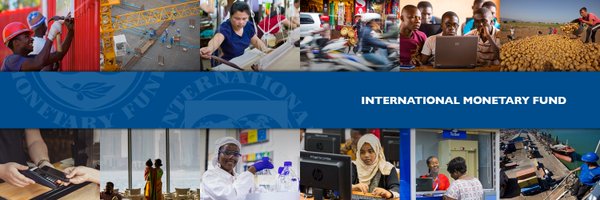 (AGENPARL) - Roma, 24 Giugno 2022
(AGENPARL) - Roma, 24 Giugno 2022(AGENPARL) – ven 24 giugno 2022 The latest IMF analysis of global economics, finance, development and policy issues shaping the world. []
[IMF Weekend Read]
Dear Colleague,
In today’s edition, we focus on risks to global growth and challenges facing the poor, including in the Middle East and North Africa, the evolution of global financial markets, the dollar’s dominance, Ethiopia’s economy, Somalia’s statistics, central bank digital currencies, Covid’s trade spillovers, sovereign debt, and much more.
Middle East & North Africa
Why Countries Must Cooperate on Carbon Prices
(PHOTO: IMF PHOTO/JAKE LYELL)
“Global growth is likely to be lower than expected, while inflation is higher. We must also not forget that poverty and inequality are increasing,” Gopinath said.
–Extreme Poverty: Across the world, 75 million more people are estimated to have been pushed into extreme poverty by the pandemic in 2021. High food prices have added to the challenges facing the poor, especially in the Middle East and Africa, where food accounts for 40 percent of consumers’ spending.
A worsening of the situation in Ukraine would heighten human and economic costs, while higher-than-expected inflation could inflame social tensions, Gopinath told the conference, which is part of the Fund’s preparations for the 2023 Annual Meetings in the Moroccan city of Marrakesh.
“All of these challenges have immediate consequences. But they could also leave long-term scars that drag down growth for years to come,” Gopinath said. “The actions we take now could make all the difference for the future.”
Financial Markets
(IMAGE: IMF/ROSE KOUWENHOVEN)
This semiannual publication by the Monetary and Capital Markets Department has since evolved through years of seismic shifts in the global economic and financial landscape into one of our key multilateral surveillance tools.
Though we have made progress, the authors say, the continuous evolution in global financial markets—not least because of the dizzying pace of technological innovation—is always introducing new vulnerabilities and risks that demand constant vigilance.
“More than ever, rapid technological change as well as frequent and varied shocks make our surveillance crucial for safeguarding international monetary and financial stability in order to promote growth and inclusion,” they say. “And it’s increasingly clear that, to do so, we must constantly adapt and sharpen our tools for assessing risk to better scan the global financial landscape and strengthen its resilience.”
(CREDIT: AISIAN13 FROM GETTY IMAGES)
How these forces play out will have major ramifications for the evolution of the world order, because financial power is a key element of soft power, Prasad continues. He explores the changes underway that could affect dollar supremacy and draws wider conclusions for the global order.
Our June issue focuses on the economic dimensions of the current geopolitical situation, including the war in Ukraine, refugees, and food prices.
Authors include Tharman Shanmugaratnum, Pierre-Olivier Gourinchas, Eswar Prasad, Raj Chetty, Barry Eichengreen, Patricia Clavin, and many others, who examine the rare confluence of geopolitical, economic, and technological forces now confronting the world may reverberate for generations.
Want to get a print copy delivered to your home or office?
—————————————————————
(PHOTO: UNSPLASH/LESLY DERKSEN)
(PHOTO: UNSPLASH/KHALID ABDALLA)
(PHOTO: ISTOCK/KRECHET)
(CREDIT: IMF/ROSE KOUWENHOVEN)
WEEKLY ROUND-UP
—————————————————————
[profile]
Nick Owen
Editor
IMF Weekend Read
Thank you again very much for your interest in the Weekend Read! Be sure to let us know what issues and trends we should have on our radar.
Connect on Social

